EXCLUSIVE: Austrian coach Schopp on playing with Baggio & Guardiola in Serie A
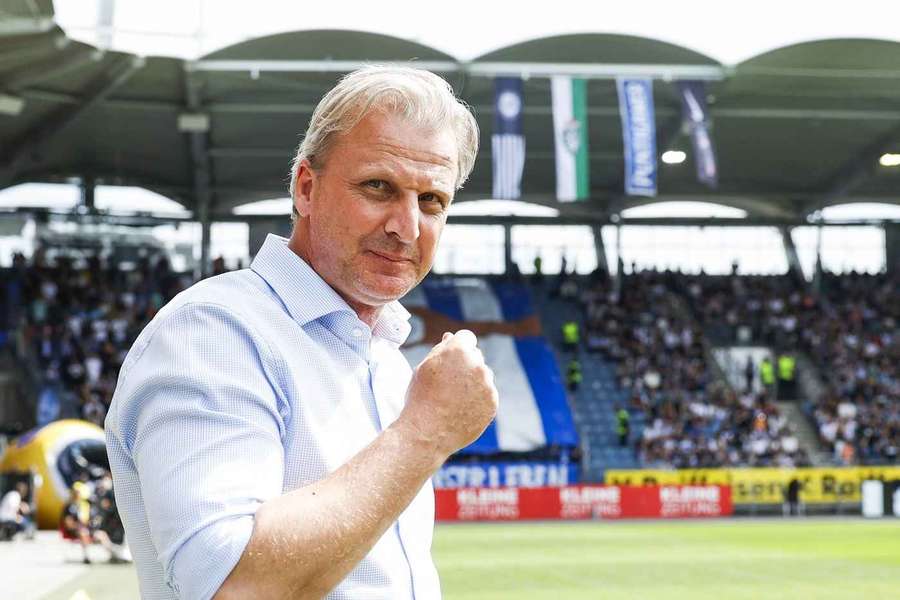
It was a playing career which saw Schopp help Austria reach the 1998 World Cup before coaching took him to England with Barnsley ahead of eventually establishing himself at Hartberg.
In this interview, Schopp talks extensively about his playing and coaching career, offering insights on former teammates Baggio and Guardiola, along with reflecting on the influence of Ralf Rangnick and RB Salzburg and of his enjoyment being in charge of Hartberg today.
Markus, thanks for joining us. Before we look back, tell us about TSV Hartberg and your hopes going forward.
"TSV Hartberg is a fanatical, small, very warm, and lovingly run club. I was able to coach the club three years before my involvement at Barnsley and have now been back in office as both coach and sporting director since December 2022.
"When I returned one and a half years ago, the club had massive sporting problems. TSV was last in the table and in danger of relegation. By strategically cleverly adapting the team and implementing a suitable game idea, we managed to stay in the league early.
"We made a big change in the summer of last year. We went from being the oldest team to being the second-youngest team in the league. Our game idea was further refined and the budget was reduced. The result is the best season in the club's history.
"We played refreshing football and even produced our first Austrian team player ourselves in Hartberg. The club is starting to grow and a new stadium is being planned. Furthermore, our academy is developing splendidly and viewer interest is increasing. The TSV Hartberg project is on track and I am proud to be part of this project."
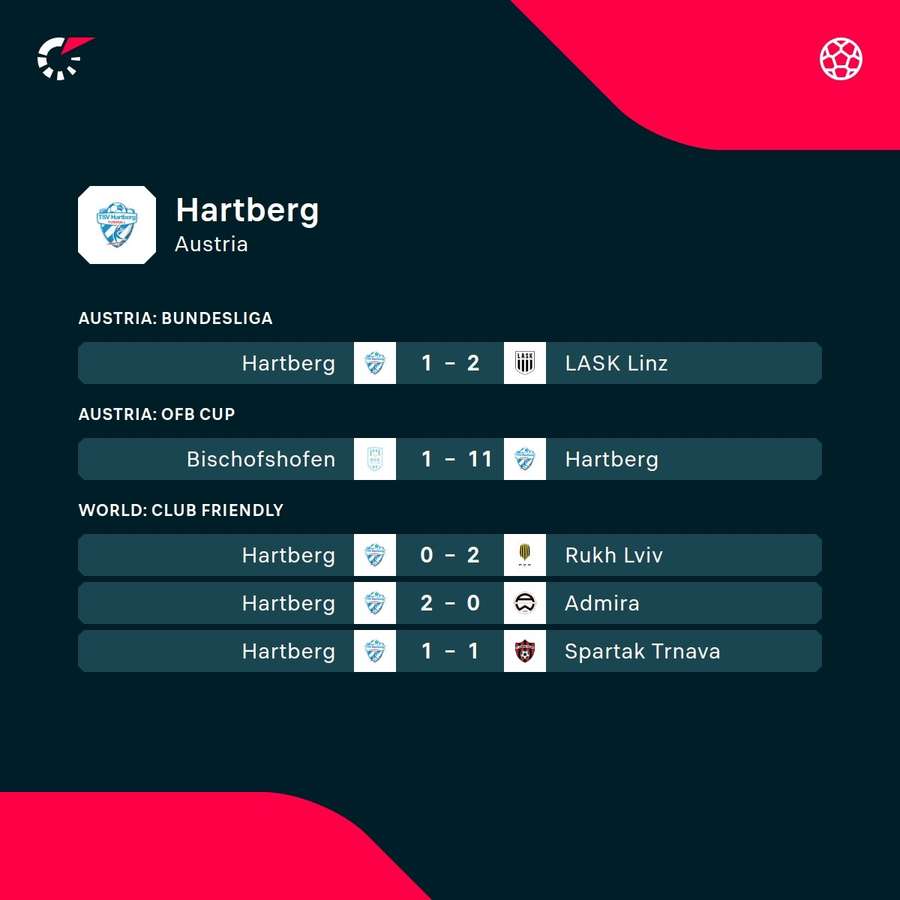
What about the Austrian Bundesliga? What can you tell us about its strengths?
“The Austrian league is a fantastic development league. Due to the international successes of RB Salzburg, Sturm Graz, Rapid Vienna, Wacker Innsbruck, and LASK, great international talents come to Austria and take the step from youth football to adult football. The type of football played in Austria is also increasingly appealing to top international leagues.
"In Austria, they also recognize the possibility of their young talents leaping into adult football more easily with the help of the work of Austrian clubs. This path will also have to be followed in Austria in the future, as the gap to the financially stronger leagues will increase.”
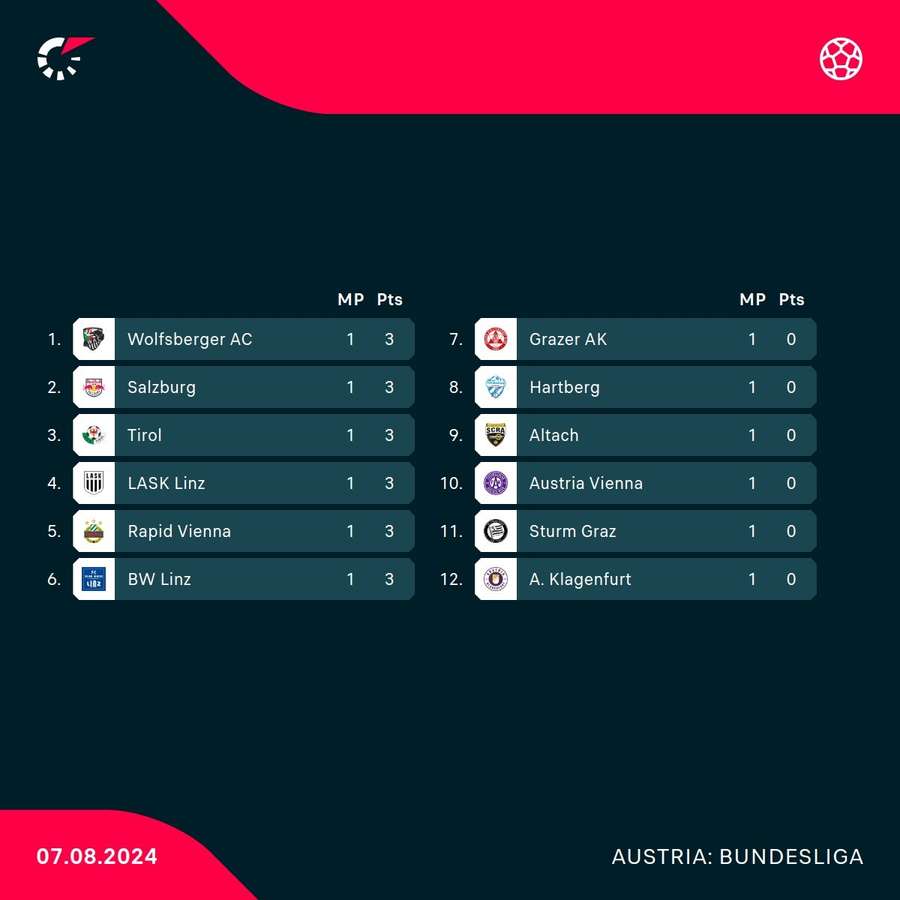
As a player, you ran the midfield for your country's two strongest clubs...
“Sturm Graz and RB Salzburg are currently the best teams in the league. During my time as a player, both teams, alongside FC Tirol, Rapid Vienna, and Austria Vienna as well as Grazer AK, were the ultimate in the highest Austrian football league.
"I have a very special relationship with Sturm Graz. Both my grandfather and my father played or worked for this club. Graz is my home town and Sturm Graz is my sporting home. I went through all the youth teams and was a fan of this club myself. When you, as a young player, can play for this club and help shape the club's history because of the greatest successes, then there is a very special connection here.
"Two championship titles, three cup titles, and three participations in the UEFA Champions League are among the best successes of my time as a player and opened the doors to Germany, Italy, and the USA.
"My time at RB Salzburg was short but very intense. It was Red Bull's year one in Austrian football and nothing stayed the same. Red Bull has changed the league sustainably over the years and has been the top favourite to win the championship since the 2005/2006 season.
"Unfortunately, as captain of the team, I was not able to lead the team to the title that season. We only came second in the championship and many players and coaches had to leave the club afterwards. I will never forget this time because both the city and the club were an important and indispensable part of my career."
As you say, you came back to play in Austria for RB Salzburg. But before then, there were four incredible years with Brescia, where you played alongside Roberto Baggio...
“Even as a young player, Robbie was one of my great international role models and heroes. His way of playing football was inspiring and he also played in what was probably the best league of the time - Serie A.
"When I got the offer to move to Brescia, several dreams came true for me. Firstly I was allowed to move to my dream league in Italy and secondly, I was allowed to play in a team with my youth idol Roberto Baggio. Both were fascinating and both will remain unforgettable forever.
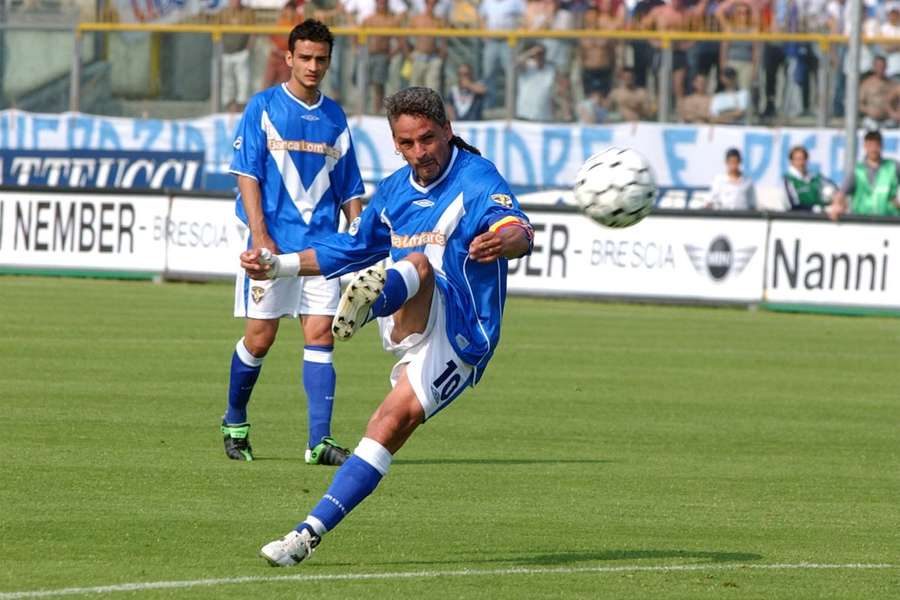
"Roberto was arguably the biggest star in Italian football at the time. Despite his advanced footballing age, he filled all stadiums across Italy and thrilled the crowds. As a guy, he was incredibly collegial and always kept his feet on the ground. He was never the classic Italian who came to training every day with new clothes but rather impressed people with his simplicity. He was never shy about talking to the fans and was always available to request autographs.
"The fans loved Roberto and Roberto loved the game. He made football look so easy, despite his many injuries. I will never forget how Roberto seriously injured his knee in Parma at the beginning of February in the 2001/2002 season. That season was supposed to be something special in Robbie's career, as the World Cup was taking place in South Korea in the summer of 2002.
"Until this game, Roberto had attracted attention for his performances and was on the verge of returning to the Italian national team. With this injury, Roberto's dream of the big final World Cup tournament seemed to be dashed.
"Not for Robbie - he and his support team worked day and night and wanted to leave no stone unturned to make the big dream of the World Cup possible. Less than three months went by and on the Saturday before our championship game against Fiorentina, there were rumours that Robbie was coming over for the final training session.
"We didn't see him once in the whole three months and Roberto didn't come to the final training either. It wasn't until the next day, right before the game, that Roberto sat next to us on the bus to the game. He was back in the team's squad for this game for the first time since his serious injury and was excited even from the bench. When he came on as a substitute in the 73rd minute, the whole stadium was euphoric and there was a standing ovation.
"You wouldn't believe it but in those 20 minutes he played, he not only scored one goal but also set up a second one for Luca Toni. He was back again, and helped us achieve our goals but unfortunately missed his last big one.
"He was not selected for the national team squad and was not able to end his career the way he dreamed. But I will always remember him not only as a great footballer but also as an incredible fighter who was able to go beyond all imaginable limits to achieve his goals.
"I am incredibly proud that I was able to give Robbie the final assist for his last goal in Serie A against Lazio. Robbie is an icon of Italian football and will forever be remembered by all fans for his magic."
You played with some great players at Brescia, including a certain Pep Guardiola. What was he like as a midfield partner?
“In Italy, I was lucky enough to play alongside Roberto and many other top players. In addition to Luca Toni, Stephan Appiah, Gigi Di Biagio, Matuzalem, Marek Hamsik, and Pierre Wome, Pep Guardiola is of course at the top of the list.
"Pep came to Brescia Calcio in Italy at the same time as me. We initially spent time together in the team hotel and were able to talk about football regularly. Pep's eyes lit up when he talked about football. The fire was contagious and even as a player he managed to look at the game from the coach's perspective. His time in Barcelona, especially his time with (Johan) Cruyff, shaped him both as a player and as a coach.
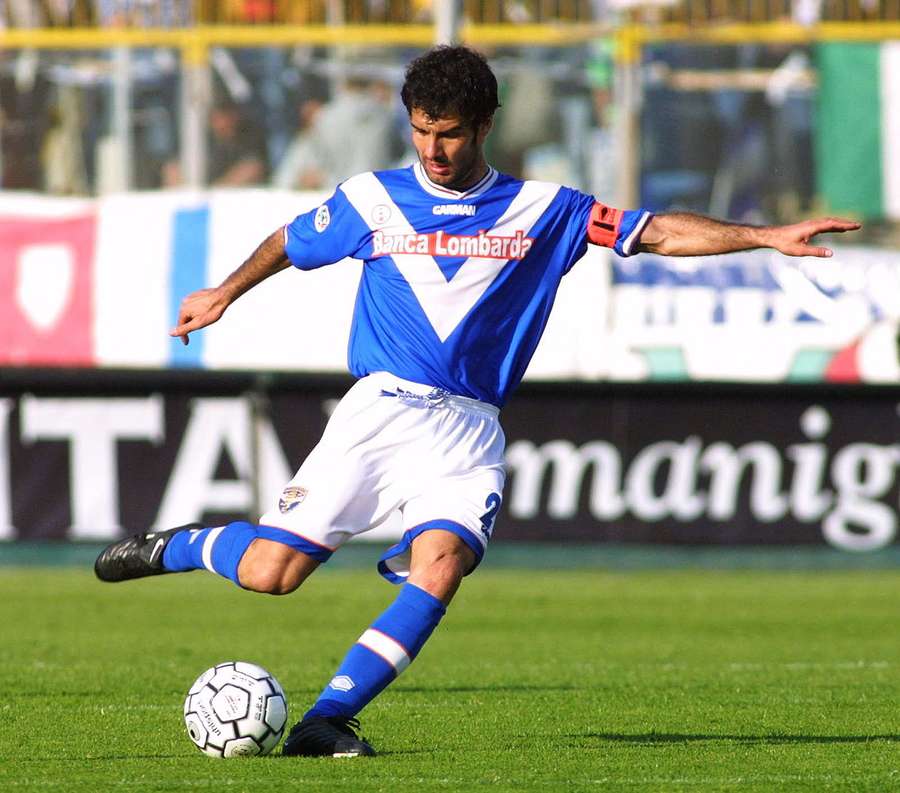
"Pep chose the Italian league carefully. The Italian Serie A, along with the Primera Division in Spain, was considered one of the strongest leagues in the world, where the most exciting coaches worked at the time.
"Like Roberto, Pep was also incredibly focused and professional. He was a fantastic teammate and every game with him and Roberto was an experience. Pep was more of a strategist in midfield and played balls smoothly and precisely into the path of his teammates. He saw and understood the game already on another level. His set pieces were a delight and his calmness under pressure was impressive.
"Pep used the years after his playing days in Barcelona to get to know as much as possible as a player. I think his plan to become a coach was clear from the start. I am grateful to have gotten to know Pep as a player and I appreciate that Pep has often allowed me to shadow him.
"He is the greatest manager of this time and shapes current football."
Just returning to the impact of Red Bull on the local game, has it been positive?
"Red Bull's successful period started in the 2012/2013 season. Ralf Rangnick was installed as the new sporting director and with him a trainer named Roger Schmidt. Both had a clear idea of how successful football could work in Austria but also internationally. A clear game philosophy was defined and a search was made for players with the corresponding profiles to match this game idea.
"Investments were also made in the infrastructure. The goal was to become the contact point for the world's greatest young talents. The Austrian League was perfect for allowing this idea to mature. Pressing, counter-pressing, intensity against the ball, verticality in possession coupled with individual quality have characterized Austrian football for over 10 years. Players who were developed at RB Salzburg now play in the biggest and best leagues - Erling Haaland, Sadio Mane, Marcel Sabitzer, and many more...
"The regular championship wins and cup titles as well as regular participation in the Champions League confirm the successful path. There are also teams with RB Leipzig, RB New York, and RB Brazil that are built according to similar strategic considerations. The RB concept in top football is competitive and works."
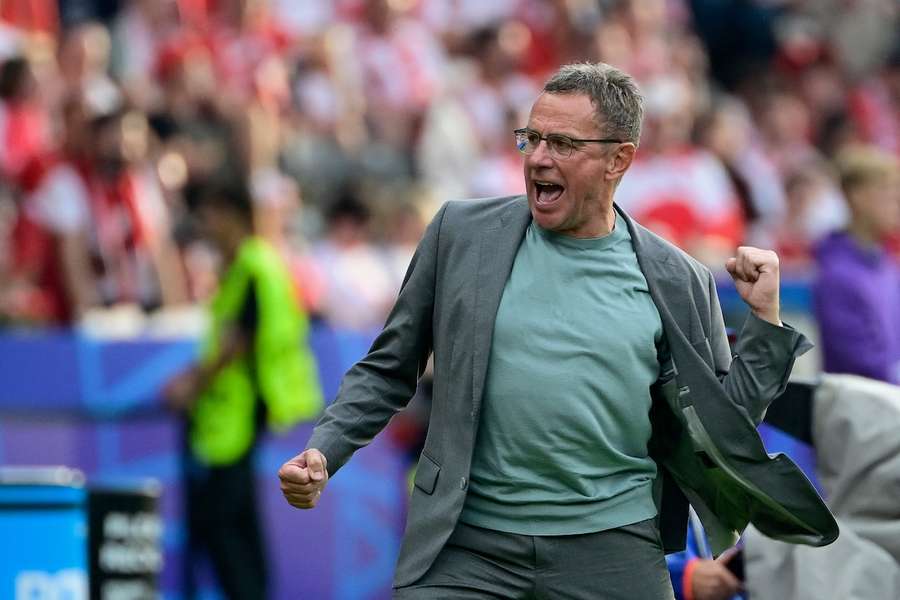
You mentioned Ralf Rangnick, what's your assessment of his job as national team coach?
“Ralf is doing a fantastic job in Austria. In reality, he is benefiting from the work he has already done over the last 10 years. Most of the current national team players completed their training at Red Bull. There are also absolutely exceptional talents like David Alaba and Marko Arnoutovic.
"It cannot be overestimated that Ralf turned down the opportunity to move to Bayern Munich and instead continued training with the Austrian national team. He sees the team's potential and makes us all dream big. Ralf is the right man at the right time with the right team."
Going back to yourself, can we say your time with Barnsley was a learning experience?
"My time at Barnsley is comparable to my time as a player in Hamburger. Incredibly hard time but incredibly educational. The English Championship is one of the toughest leagues in the world and I am proud to have been part of this competition, at least in the short term.
"Things didn't go perfectly right from the start. The expectations were extremely high due to the previous season and I was unable to meet these expectations. My time at Barnsley has made me a better coach. I wish the club a speedy return to the Championship."
You raised your time as a player at Hamburger, why didn't it work out?
“I don't want to miss any of the clubs listed on my CV. All stations were formative for my development as a player and now as a coach. All the coaches who trained me on this path made me what I am today. Successful moments were followed by less successful ones and dealing with these experiences made me more mature, more experienced, and better.
"My time in Hamburg was probably the most difficult in terms of sports, but it was precisely during this time that I became an absolute professional in my head. My subsequent successes would never have been possible without this time in Hamburg.
"My further stations abroad were characterized by this learning process, both athletically and personally. On this trip, I was able to meet many fantastic people, most of whom I still have regular contact with today.”
Before we sign off, Markus, what can you see for yourself in the future? Does Hartberg remain your full focus?
“Here, too, there are parallels to my time as a player. If there were serious defeats or negative periods at various clubs, I always tried to draw the right conclusions and not just look for blame on others. As a trainer, I was able to learn my chapters and try to stay true to my path.
"My time in Hartberg has been marked by many beautiful moments, but I would be lying if, after my adventure in England, I wasn't interested in an adventure abroad again. The hunger is great and the will to give everything for it is huge. Let's see what the future brings - whatever comes, I will be prepared for it."
